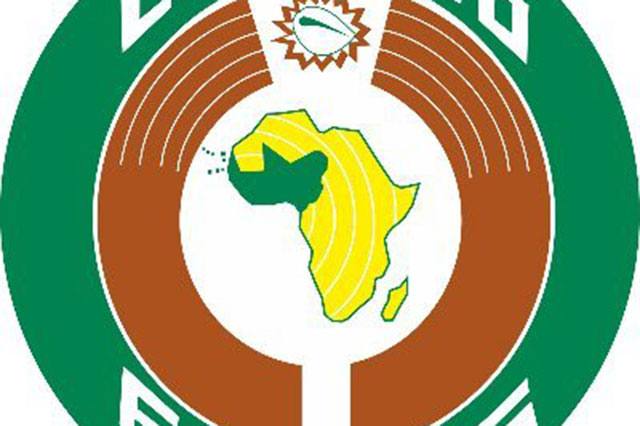Accra – West African leaders on Thursday decided against toughening sanctions against Burkina Faso after it became the region’s latest country to be hit by a coup, opting instead to demand a timetable for a swift return to civilian rule.
On January 24, Burkina Faso became the third member of the Economic Community of West African States (Ecowas) to have an elected president toppled by the military in the last two years.
The spate began with Mali, where a coup in August 2020 was followed by a second in May 2021, and then Guinea, where elected president Alpha Conde was ousted last September.
Ecowas called an emergency summit in Accra to see whether Burkina Faso should join the other two for trade and other sanctions, as well as suspension.
Rather than imposing tougher sanctions, the leaders asked for the “speedy creation of a reasonable timetable for the return to constitutional order” in Burkina Faso, the head of the Ecowas Commission, Jean-Claude Kassi Brou, told a news conference.
‘Good sign’
A summit participant, speaking on condition of anonymity, said new sanctions were ruled out for the time being after the summit heard the outcome of recent talks with the junta.
A diplomatic team led by Ghana’s foreign minister, Shirley Ayorkor Botchwey, had reported positive signs after meeting in Ouagadougou on Monday with strongman Lieutenant-Colonel Paul-Henri Sandaogo Damiba and other junta members.
“They seemed very open to the suggestions and proposals that we made. For us it’s a good sign,” she said.
The talks were attended by the UN’s special representative for West Africa and the Sahel (UNOWAS), Mahamat Saleh Annadif, who described a “very frank exchange”.
The delegation also met ousted president Roch Marc Christian Kabore, whose well being and demands for release from house arrest are major issues.
ALSO READ | Burkina Faso junta lifts nationwide curfew in force since coup
During their visit, the junta declared it had restored the constitution, which it had swiftly suspended following the coup, and named Damiba as president and head of the armed forces during a transition period.
And on the eve of the summit, the junta also lifted a nationwide curfew.
But the duration of the transition period and other key questions have not been detailed.
After seizing power, the junta vowed to re-establish “constitutional order” within a “reasonable time”.
Ecowas imposed measures against Mali and Guinea for perceived foot-dragging over spelling out or upholding pledges for holding elections.
These have included the closure of borders by bloc members, an embargo on trade and financial transactions and sanctions against individuals.
The sanctions have ratcheted up economic pressure, although there is no sign yet that this has translated into political action.
Fragile states
In deciding whether to impose sanctions, Ecowas leaders had to balance the credibility of their organisation against the fragility of some of their states, especially in the Sahel.
Adding to the region’s turmoil was a gun attack on Tuesday on the president of Guinea-Bissau, Umaro Sissoco Embalo, stoking fears that years of efforts to steer West Africa towards stability and democracy are failing.
“The surge of coups in our region is a serious source of concern,” said Ghanaian President Nana Akufo-Addo as he opened the summit, calling on Ecowas to “remain firm”.
Kabore, like his former counterpart in Mali, Ibrahim Boubacar Keita, was toppled by disgruntled officers on the back of public protests at the handling of a jihadist insurgency.
ALSO READ | African Union suspends Burkina Faso after coup
Both countries are in the throes of a nearly decade-old jihadist emergency that has claimed thousands of lives and forced at least one and a half million people from their homes.
Escalating political friction with the junta in Mali has driven Bamako closer to the Kremlin and cast a shadow over France’s anti-jihadist mission in the country.
On Wednesday, the Malian government warned of the risk of sanctions triggering a wider crisis, saying the restrictions imposed on it in January by Ecowas prevented it from honouring its latest bond payments.
In a statement that sought to reassure investors, the junta said it had the necessary funds in its coffers but the regional issuing bank, the Central Bank of West African States, had refused to allow the payment.
The payment is related to two bonds amounting to around 2.6 billion CFA francs (around $4.5 million, four million euros), launched by Mali on the West African Economic and Monetary Union (WAEMU) market, the statement said.
Follow African Insider on Facebook, Twitter and Instagram
Source: AFP
Picture: Twitter: @ecowas_cedeao
For more African news, visit Africaninsider.com


